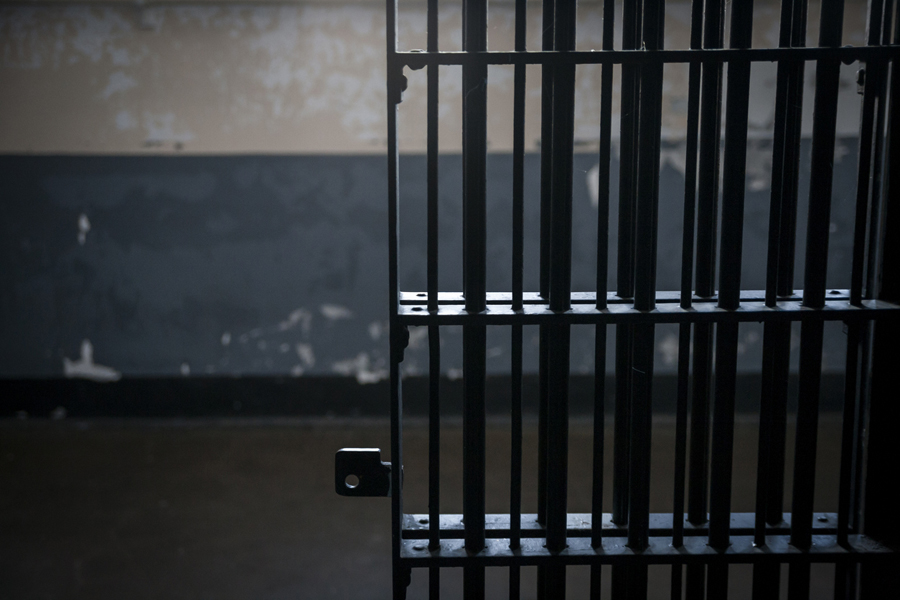City Council Declares Push to End Cash Bail in Philly
The city has moved one step closer to ensuring that no one is kept behind bars solely because they can’t afford a fee to be free before trial.
Philadelphia officials have declared their intention to end cash bail in the city.
In a symbolic but nonetheless historic move, City Council members passed a resolution on Thursday calling on the District Attorney’s office, state legislature, and the state Supreme Court to set a cash bail overhaul process in motion. Their hope is that the push will eventually ensure no one is kept in prison solely because they can’t afford to pay bail.
The resolution is nonbinding — meaning it won’t bring about any immediate, direct changes. But it’s still a “significant development,” says Paul Heaton, academic director of the University of Pennsylvania Law School’s Quattrone Center for the Fair Administration of Justice, a research and policy hub created to improve the nation’s criminal justice system.
“To have the voice of City Council saying this is something we want to happen will hopefully spur further action,” Heaton said on Thursday.
As he and local officials are quick to point out, this is a direction Philly has been moving in for years. The city has reduced its overall prison population by 22 percent – from 8,080 inmates to roughly 6,300 – since July 2015, largely thanks to a $3.5 million grant from the MacArthur Foundation. The far-reaching MacArthur project aims to safely reduce the prison population by 34 percent by May 2019, through efforts that include cash bail reform via pretrial risk tools, improved case processing times, and monetary bail alternatives. It’s an ambitious plan for a city with one of the highest incarceration rates in the country.
Some background: Judges can assign cash bail (sometimes called monetary bail or a secured bond) to defendants who have been accused – but not yet found guilty – of both violent and nonviolent crimes. Often people pay these amounts and are released – but not always. About a quarter of the people in Philly jails are awaiting trial without detainers, meaning are behind bars solely because they haven’t paid bail. About 4 percent of inmates are awaiting trial on murder charges, while slightly under 22 percent are facing low-level charges. Pretrial defendants held on low cash bail have an average bail amount of $6,367, according a 2017 city controller report. Defendants must pay 10 percent of bail in order to be released – so a person with a $6,367 bail would have to pay about $636.
Officials and advocates who oppose the cash bail system point to research showing that it discriminates against low-wealth communities and people of color who are held on low-level, nonviolent charges for things like prostitution, shoplifting, or drug-related offenses. Even short periods of pretrial detention correlate with a greater likelihood of defendants being sentenced to jail and recidivism, according to the Pretrial Justice Institute.
The just-passed resolution sponsored by Councilman Curtis Jones states that monetary bail “contributes to the overcrowding of our City’s jails,” and “jailing people because they cannot afford to post money bail amounts … violates well-established norms of fairness and constitutional principles and undermines the integrity of our criminal justice system.”
The resolution concludes by calling on the city and state’s criminal justice agencies to “work together to end the practice of reliance on cash bail.”
City council unanimously votes to adopt cash bail resolution. @PHLCouncil #endcashbail pic.twitter.com/SEodljdblA
— Philly We Rise (@phillywerise) February 1, 2018
As statistics show, cash bail reform is a goal the city has already been “aggressively” pursuing, says Julie Wertheimer, project director of the MacArthur grant program and the city’s chief of staff for criminal justice. But what comes next – the goal to effectively eliminate the system, as Washington, D.C., and New Jersey have – is not so simple.
Heaton and the City Council resolution acknowledge that multiple authorities – local officials, the DA’s office, and the First Judicial District of Pennsylvania – all play a role in bail reform. With the election of progressive DA Larry Krasner, who campaigned on ending cash bail for nonviolent defendants, the ball is more likely to get rolling. Krasner’s spokesperson said on Thursday that the office is “engaged in an internal review of DAO policies to determine the best way that our office can contribute toward making that goal a reality.”
Still, there’s no “magic bullet or single thing we could do that would completely address the issues,” Heaton said. Instead, bail reform in Philly will “probably involve a variety of different types of initiatives that are coordinated together.”
That could include implementing internal policies that rely more heavily on cash bail alternatives – a method already pursued by as the city and the First Judicial District. Another possibility, which City Council is pushing, would be for state legislature and the Pennsylvania Supreme Court to revise state laws and procedure codes governing bail to either allow for elimination statewide or to provide an exemption for cities like Philly. Given Pennsylvania’s Republican-dominated legislature, that’s unlikely to happen any time soon.
Courts in both New Jersey and Maryland have recently moved to end cash bail. New Jersey nearly eliminated its monetary bail system roughly a year ago, opting instead to have judges consider individual risks of each defendant before deciding whether defendants should be released or kept in jail before trial. The switch, which is largely seen as successful, reduced the state’s prison population but led to a drop in business for the state’s bail-bonds industry as well as a few court challenges, according WHYY.
Heaton says he suspects efforts in Philly and Pennsylvania “won’t go as far down the pike,” as New Jersey, which is leading the nation in bail reform. Still, he says the recent resolution “sends an important message to folks who have been advocating for change.”
Resolution No. 18003200 by Claire Sasko on Scribd



